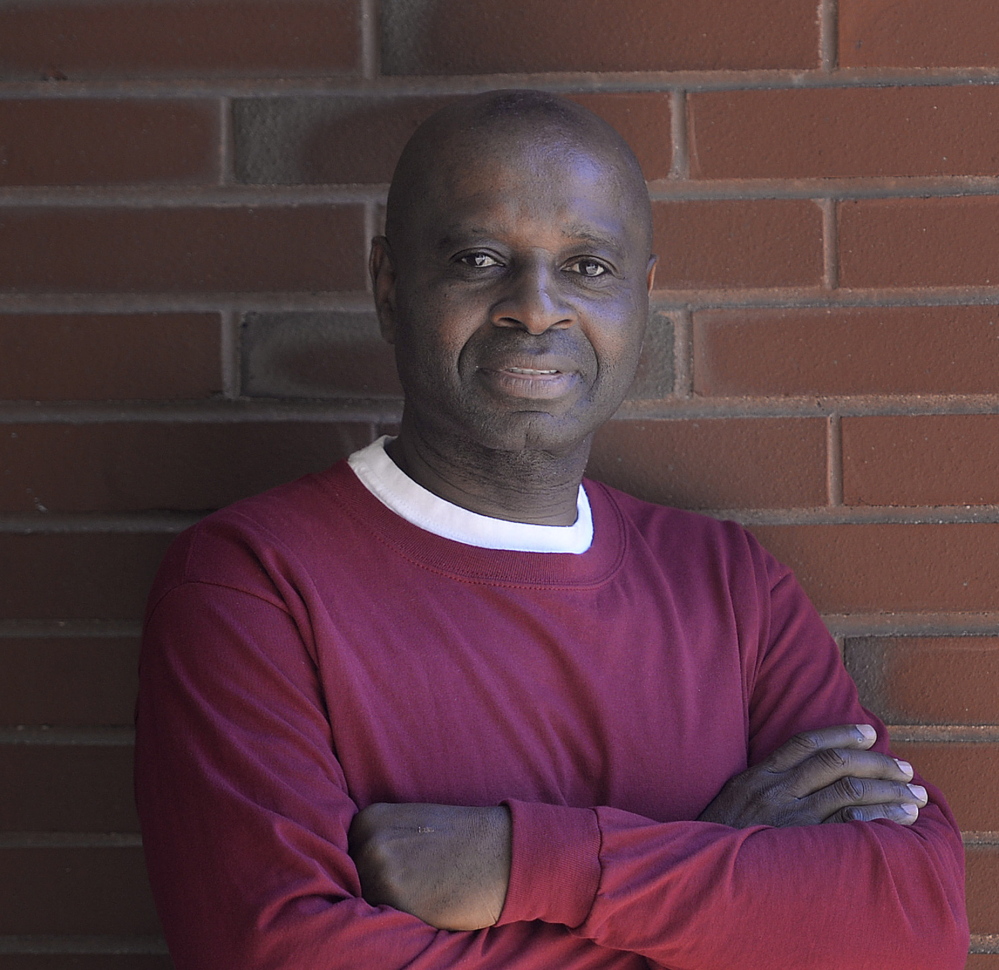Where Richard Afuma grew up in the West African nation of Cameroon, he had no running water or sanitation, and his home was made of mud and thatch.
He slept on a bamboo cot, wore rags for clothing, and faced nightly invasions of roaches, mice and rats. He bathed out of a bucket, or waited for the rain to wash him clean.
Afuma doesn’t remember how old he was, but he remembers the moment he identified his life’s goal.
“My earliest memory is of seeing a white person and modern technology and inventions,” he said. “Seeing them transformed my life.”
Whatever future he would have, Afuma wanted it to be in the United States.
“I remember thinking that Americans have no want,” he said. “That they are all independently wealthy. Whether I succeed in America or not, I needed to come here.”
His journey began when he was only 8 years old, when his mother sent him away to live with distant relatives who could afford to pay for his schooling.
Afuma devoured anything he could find out about American culture and life. He converted to Christianity, and sought out the help of a local American cultural center.
One of 11 children, Afuma, now 48, said he was the only one to reach secondary school, and as he gained an education, his drive to succeed and escape Cameroon only grew.
When he began attending university classes in the Cameroonian capital, Yaoundé, he used to walk by the U.S. Embassy day after day, looking up at the American flag.
At an American cultural center at the university, an American woman suggested that he look into attending an American college.
“She gave me the brochure to Westbrook College,” he said, which has since merged with the University of New England.
When he landed in the United States in 1987, he was shocked to find poverty and homelessness here, too.
“Never in my wildest dreams did I think I’d come across a homeless person in America,” he said.
Now a naturalized citizen who has lived in the United States for more than 25 years, Afuma has learned that much of what he believed about the United States was a fantasy. Still, he cannot forget the poverty of his childhood, which has kept him grounded and thankful to live here.
Since his first years in the United States in the late 1980s, Afuma has earned his bachelor’s and master’s degrees, and now works as a life coach to people with developmental disabilities.
Although Afuma, who is living with another family, is still struggling to find a career that can support him, he is happy to do it in the United States.
“I prefer American problems to Cameroon problems,” he said, reminding himself of what his life could have been like in Africa.
“Sometimes I feel like Americans are unhappy with the most minor inconvenience,” he said. “They have everything in the world.”
Send questions/comments to the editors.




Success. Please wait for the page to reload. If the page does not reload within 5 seconds, please refresh the page.
Enter your email and password to access comments.
Hi, to comment on stories you must . This profile is in addition to your subscription and website login.
Already have a commenting profile? .
Invalid username/password.
Please check your email to confirm and complete your registration.
Only subscribers are eligible to post comments. Please subscribe or login first for digital access. Here’s why.
Use the form below to reset your password. When you've submitted your account email, we will send an email with a reset code.